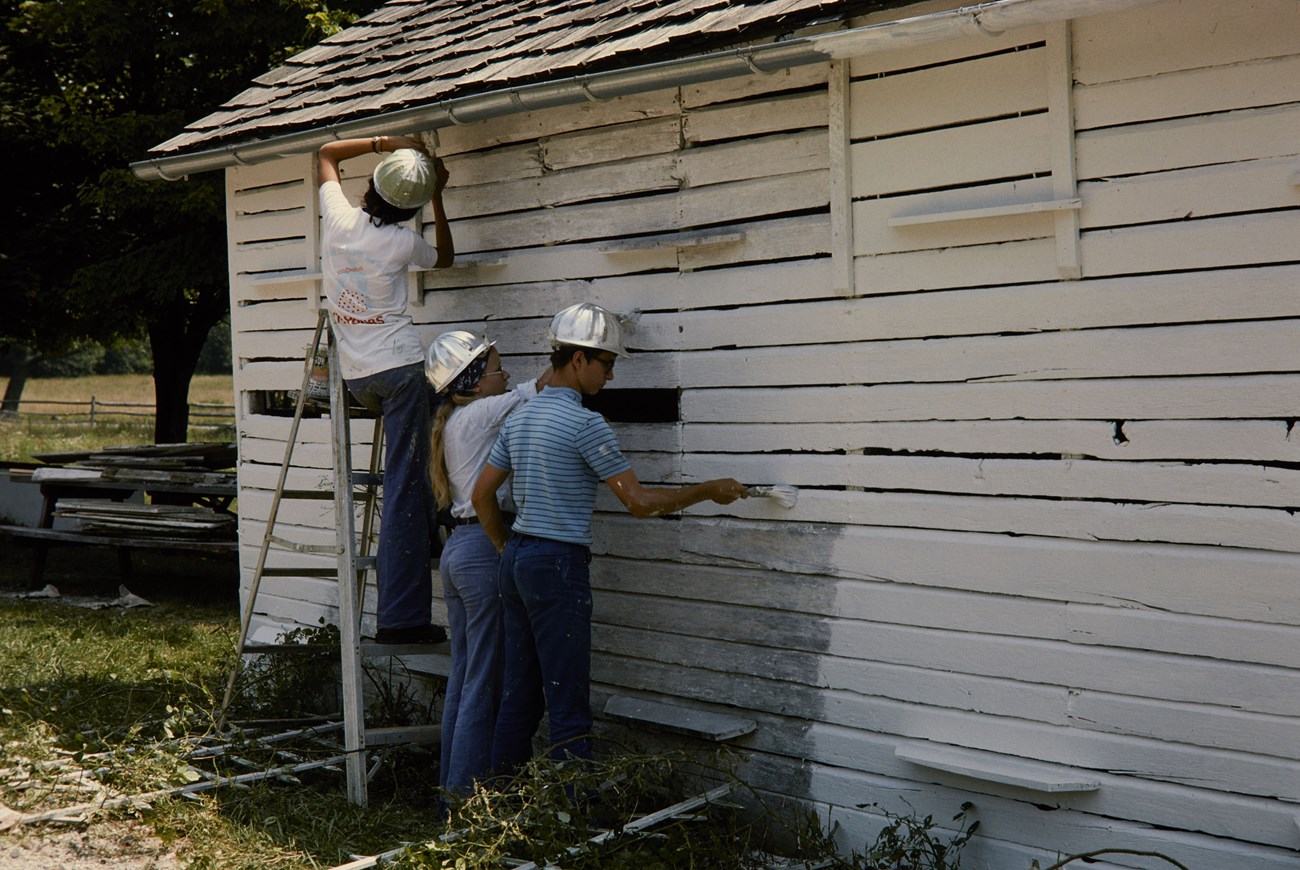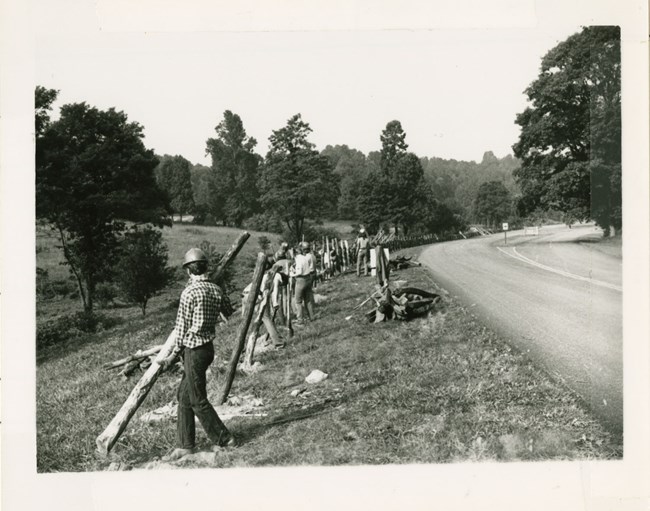Last updated: July 12, 2023
Article
Case Study: Designing an Oral History Project to Scale

NPS / Richard Frear (Harpers Ferry Center Archives HFCA 1607)
Introduction
In 2021, staff in the National Park Service Youth Programs Division began to explore conducting interviews with alumni of the Youth Conservation Corps. Since 1970 the YCC has helped hundreds of young people pursue summer jobs in conservation on public lands, and many went on to hold positions with the NPS, the U. S. Forest Service and other federal and state conservation agencies. No doubt, program alums would have interesting stories to share, and the Youth Programs staff planned to use portions of the interviews to promote the value of the YCC.
The planning team had generated enthusiasm for the project when they published a story on InsideNPS seeking to connect with YCC alumni. In fact, more than 20 people had responded and said they wanted to be interviewed. The planning team recruited a handful of volunteer interviewers – although few were formally trained, and all would be fitting interviews into their regular duties. The plan was to use Teams videoconferencing to record the interviews.
What did I think of the plan, a Youth Programs staff member wanted to know?
Response
The concept of the YCC oral history project sounded fantastic. Although there are records and publications about YCC in archives and libraries, recording first-person accounts of YCC jobs and experiences would create unique primary sources. The interviews could document how YCC programs and jobs changed over the decades and what the experience meant to participants. Why did they want to join the YCC? What skills did they learn? What friends did they make? How did the YCC influence their lives and vocational choices?
The challenge was to turn a great idea into a successful plan. How to help the planning team understand how demanding the oral history process is and how vital it is to calibrate goals and resources. “I cannot emphasize enough,” I wrote in an email, “how important it is to scale your ambitions to match the resources available in staff, time, and money. You cannot do oral history for nothing. It is an extremely labor-intensive methodology.”
Building from the Foundation
I encouraged the staff member to become familiar with oral history fundamentals. The “Introduction to Oral History” from the Baylor University Institute for Oral History is an online manual that describes how to plan and design an oral history project, choose recording equipment, plan and conduct interviews, process and archive recordings, and use oral histories for interpretive programming. It’s a good place to start.
Learn about the basic building blocks of any oral history project. They include:
-
Designing a project
-
Selecting recording equipment—audio or video or a combination of both?
-
Considering legal and ethical issues
-
Interviewing
-
Interview processing and preservation
-
Using oral history in research, publications, websites, museum exhibits, and other media
Contemplate components of project design and adjust goals to resources available. Key parts of project design include:
-
Choose, focus, research, and refine your topic
-
Define the scope and assess resources.
-
Decide who will do what for the project.
-
Envision outcomes.
-
Set a time frame for the project.
-
Compose a project mission statement.
Answer basic questions:
-
What is the project’s purpose?
-
Who is to be interviewed? What are the priorities?
-
What is the timeline for the project?
-
What are your financial and personnel resources?
-
Where to conduct background research?
-
Where will the interviews and other materials be deposited?
-
What do you want to do with the interviews?
-
How do good planning and flexibility go hand-in-hand?

NPS / R. G. Bruce (Harpers Ferry Center Archives)
-
The oral history project needed to either find more resources in terms of personnel and money than currently available or scale back the number of interviews. Even dedicated volunteers would be hard-pressed to conduct the number of interviews envisioned. A project manager who could keep up with all the moving parts of an oral history project would make success more likely. But perhaps completing fewer interviews would enhance the quality of the interviews.
-
Set priorities for the interviews. One way to scale the project was to conduct focused interviews that lasted about half an hour. They might concentrate on a handful of basic questions: What inspired your interest in YCC? Where was your YCC assignment located, and what did you think about the place? What kind of work did you do? What did you learn –about conservation, about other people, about yourself? What difference did the YCC make in your life?
-
Although the purpose of the project was to create interviews that could be “harvested” for short audio productions about the value of the YCC, I encouraged the planning team to take the project to the next level. Plan to record archival quality interviews and to deposit them at the NPS History Collection at Harpers Ferry Center so they can be preserved and protected for long-term use. Make the investment in time and money count for the long run.
-
The Teams platform does not make archival quality recordings. Interviews would need to be done with audio recorders that can make .wav files and video recorders that produce archival quality images.
- More hands-on experience with oral history would help the planning team. I offered to help them conduct an interview with a YCC alum so they could better understand what was involved. This exercise was rewarding. The narrator was thoughtful and eager to share his memories, and the practice of completing important administrative tasks such as securing a signed legal release form was instructive.
As a result of our consultations, Youth Programs staff entered a new planning phase. They conducted more research about recording and audio/video editing costs. They contemplated the many variables that they had to consider. They thought about the kinds of interviews they wanted to conduct. The re-evaluation paid off. When a source of funding was available, they were ready to submit a competitive grant proposal.
